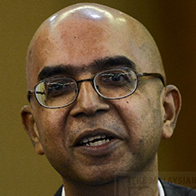 In “6 ideas to reform our deformed Dewan Negara”, I promised to write about the House of Lords in the UK. Here, I’ll fulfil that promise.
In “6 ideas to reform our deformed Dewan Negara”, I promised to write about the House of Lords in the UK. Here, I’ll fulfil that promise.
Unlike our Dewan Negara (also known as Senate or upper house), the House of Lords is not a rubber stamp for the government.
Unlike our Dewan Negara which sits for 25 days a year, the sitting days in the House of Lords vary according to the volume of business before it.
In 2014-15, it sat for 126 days; in 2005-2006, it sat for 206 days.
Unlike our Dewan Negara whose sitting days are dictated by a minister in the Prime Minister’s Department, the Lords decide their sitting days.
Like our Dewan Negara, the House of Lords has three principal functions.
First, it revises laws. For example, in 2002-2003, it introduced 9,782 amendments to government bills. Of these, 2,996 (31%) were accepted by the government.
Second, it holds the government to account by questioning, and potentially embarrassing, the prime minister and his Cabinet.
Third, it protects the constitution. Since the UK doesn’t have a document titled “constitution”, this may seem like a false claim. But it’s not.
The constitution of the UK is comprised of Acts of Parliament, court judgments and conventions. Both houses vigorously uphold these. (Our MPs and senators are often ignorant of our constitution.)
Our ministers often claim that we will be a developed nation by 2020. Yet, they are silent about challenge #3 of Vision 2020, the goal of which is to create a mature democratic society, not to preserve our ossified plutocracy.
A key feature of a mature democracy is a government which doesn’t always win and institutions which aren’t rubber stamps to approve all the government’s decisions.
The UK qualifies as a mature democracy. Data shows that in the UK, in the 28 years between 1975-2003, government bills were defeated an average of 26 times per year.
Even when the majority of members in both houses were from the same party (the Conservatives), government bills were defeated.
Before 1999, Conservative peers dominated the Lords.
In 1999 the Labour party fulfilled a promise in its election manifesto. It reformed the House of Lords.
The results can be seen by comparing the composition of the Lords in 1998 and in 1999.
In 1998, there were 1,160 Lords; in 1999, there were 688 Lords.
In 1998, 41% of the Lords were Conservatives; in 1999, 34%.
In 1998, 14% of the Lords were Labour; in 1999, 29%.
In 1998, 6 % of the Lords were Liberal-Democrats; in 1999, 9%.
The 1999 reform wasn’t just in overall size and composition of the House of Lords. The reform was also in the ratio of life peers to hereditary peers.
Life peers are something like our “Tun” – they hold the title of “Lord” for as long as they live.
The children of Tuns don’t inherit the title, though now even the grandchildren of some Tuns include “Tun” between their own names and that of their fathers.
With respect to the title “Lord,” hereditary peers are like the raja in Malaysia. By virtue of their blood line, custom entitles them to use titles like “Raja” or “Tengku” (unlike peers, the Malay rulers are required to be above partisan politics).
The 1999 reforms included removal of the automatic right of most hereditary Lords to membership of the House of Lords.
Beginning in 1999, hereditary peers had to be elected to the House by their fellow peers.
Before the House of Lords Act of 1999, about 800 hereditary peers were entitled to sit in the House. Now, only 92 may do so.
I’ve left out many details, since my goal is to show that reform is possible.
Reform is possible when citizens clamour for it, when it’s included in a party manifesto, and when there is political will to follow through.
In my first article, I explained that the different areas of our nation, with their different populations, features and aspirations, need a means to curb the will of the federal majority, and that the Senate was intended to serve that purpose.
I inferred that the government, by reducing area representatives to a minority, has ripped the heart out of the Senate.
I added that the Senate has been reduced to a back-door means for appointing non-elected ministers and parking failed electoral candidates.
In my second article, I outlined six reform ideas to restore the Senate to its rightful role.
In this article, I have recounted some reforms in the House of Lords in the UK, to show that when the people insist, change is possible. Yes, even in our Dewan Negara.
Which party will include reform of the Dewan Negara in its GE14 manifesto? – December 17, 2015.
* This is the personal opinion of the writer or publication and does not necessarily represent the views of The Malaysian Insider.


Comments
Please refrain from nicknames or comments of a racist, sexist, personal, vulgar or derogatory nature, or you may risk being blocked from commenting in our website. We encourage commenters to use their real names as their username. As comments are moderated, they may not appear immediately or even on the same day you posted them. We also reserve the right to delete off-topic comments